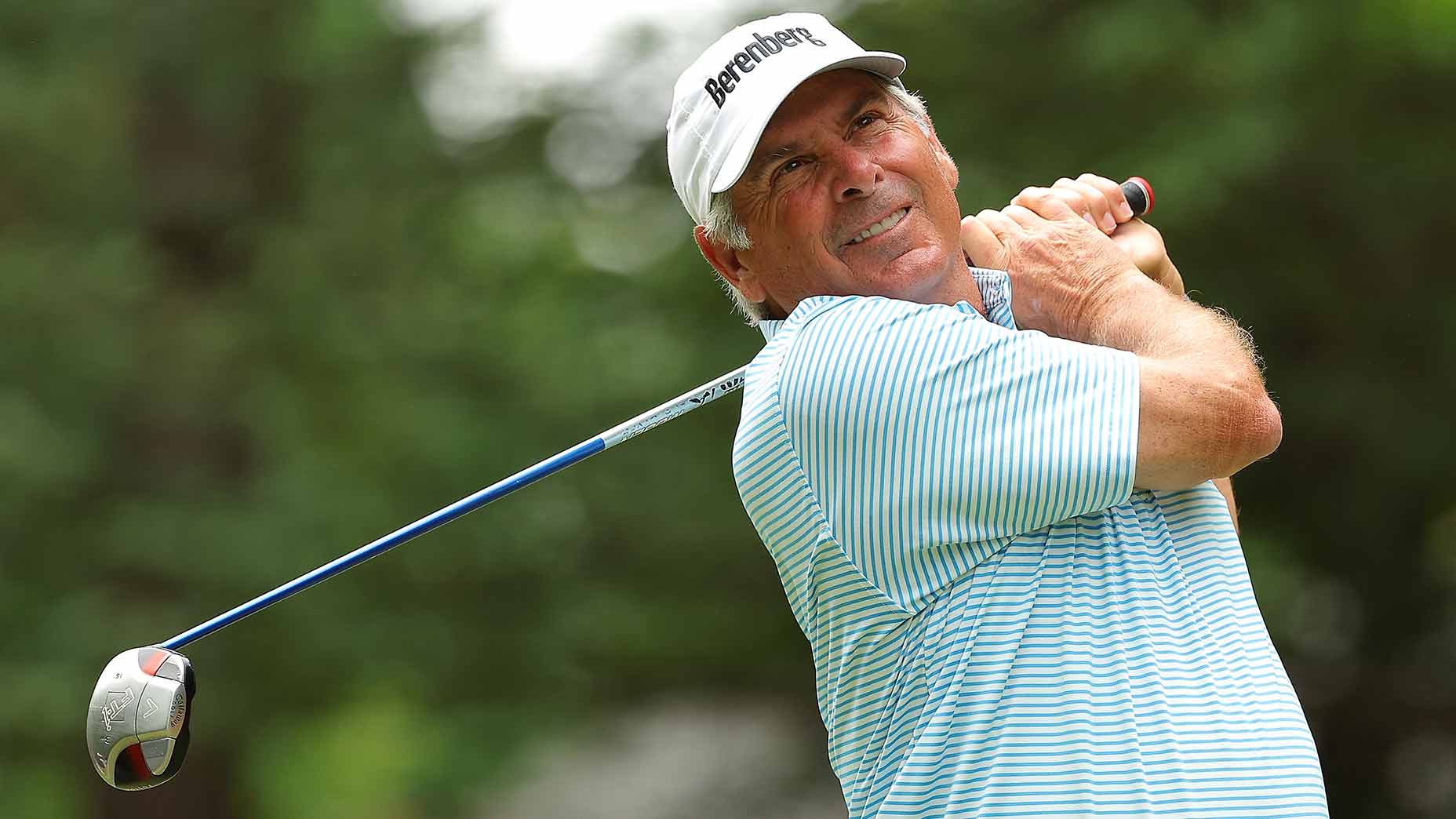Fred Couples has played a lot of golf (duh), which means he’s played in countless pro-ams with amateur golfers, their talents ranging from quite skilled to, well, not very skilled at all.
We caught up with Couples at the Berenberg Invitational at GlenArbor Golf Club in Bedford Hills, N.Y., earlier this month when he was taking part in the two-day charity event. One of the questions we asked him was to identify a common mistake he sees pro-am partners make, and what advice he’d give them.
His answer? It was good. You see, as a golf website we write about these things all the time and you hear a ton of different answers — buy more hybrids, get rid of this wood, stop using all those wedges, etc. — but Couples’ tip was a new one.
“I think one thing they really don’t quite understand is when they do hit a good shot, how good a shot it is,” said Couples, who picked up his latest win a few days ago. “So they like to vent on all the bad shots. And are they going to hit a lot throughout a day? Sure, even if they are 5-handicaps or 20-handicaps. But I think for golfers, we all get so frustrated.”
Couples’ point is this: Golf is hard. It’s hard for the pros, it’s hard for the really good amateurs so of course it’s going to be hard for you, the Average Joe who plays once a month and doesn’t practice in between.
The average PGA Tour player hits 68 percent of their greens in regulation, so why should you expect to hit all of them? That same average pro only makes 69 percent of their putts from six feet away, so you can’t assume you should be draining 9 out of 10, either.
Bad shots are bound to happen and it’s not worth having them ruin your round. At the Presidents Cup last month, Justin Thomas hit a brutal chunk and Scottie Scheffler hit an untimely shank. So, yes, bad shots can happen to anyone.
But if your average player can appreciate the really good shots vs. getting down on the really bad shots, it can do wonders for one’s mood and, in turn, your overall score. A better mindset means a better game.
“I don’t want you go out out there and laugh and be jolly if you’re not that kind of person, but it kind of affects your game pretty fast, and it has mine too,” Couples continued. “I think we just are able to click in to what we’re trying to accomplish on the next shot and that’s why some pros are better than others.”
